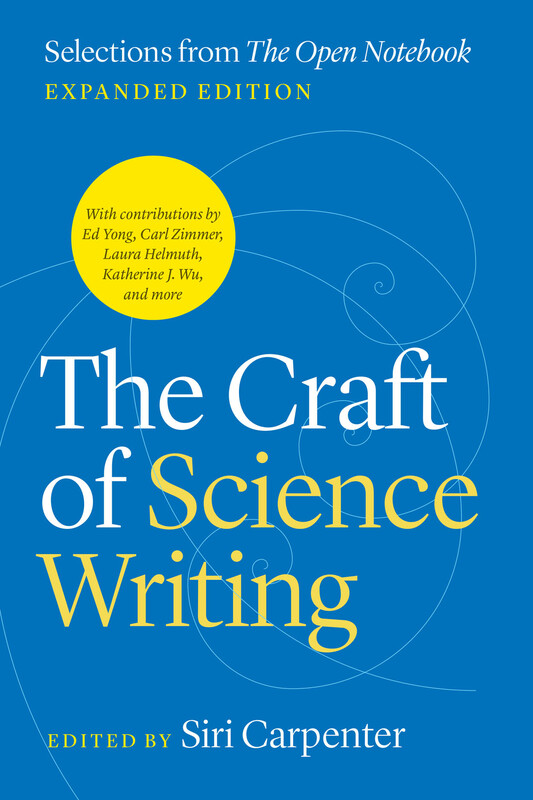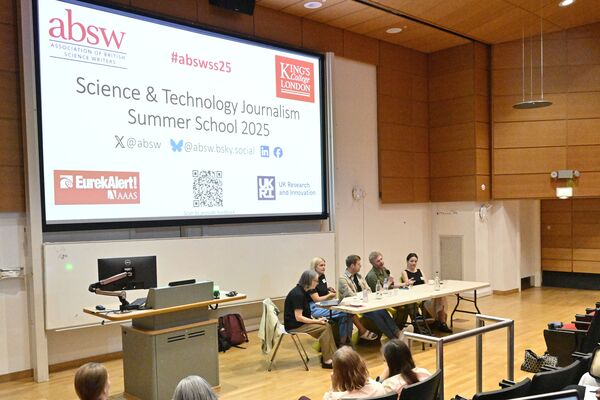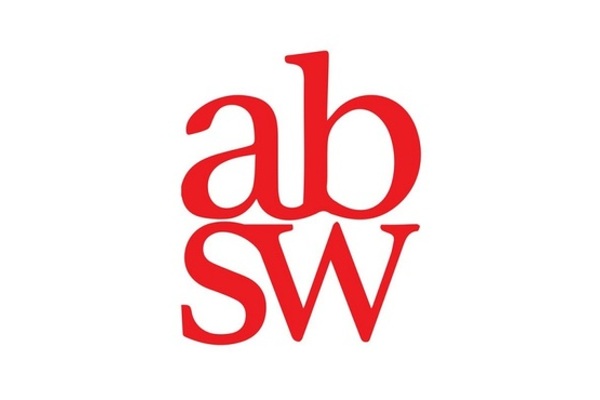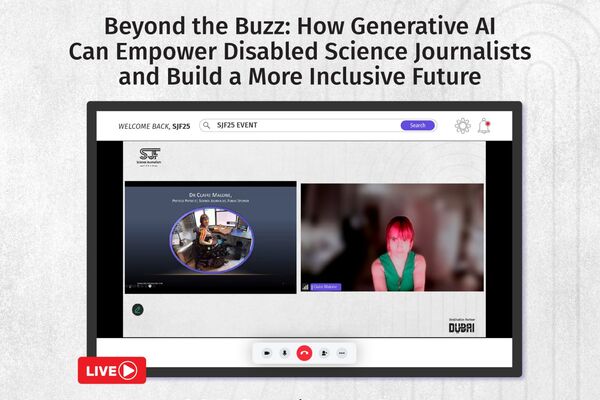If you would like to recommend other books, use this form or send them by email. If you are an ABSW member and want to share details about your books, send us all the details.
The Craft of Science Writing
Selections from “The Open Notebook”
Edited by Siri Carpenter
14 November 2024 (Expanded Edition)
The University of Chicago Press
A deeply sourced, inclusive guide to all aspects of science writing with contributions from some of the most skilled and award-winning authors working today. Science writing has never been so critical to our world, and the demands on writers have never been greater. On any given day, a writer might need to explain the details of AI, analyse developments in climate change research, or serve as a watchdog helping to ensure the integrity of the scientific enterprise. At the same time, writers must spin tales that hook and keep readers, despite the endless other demands on their attention. How does one do it? The Craft of Science Writing is the authoritative guide.
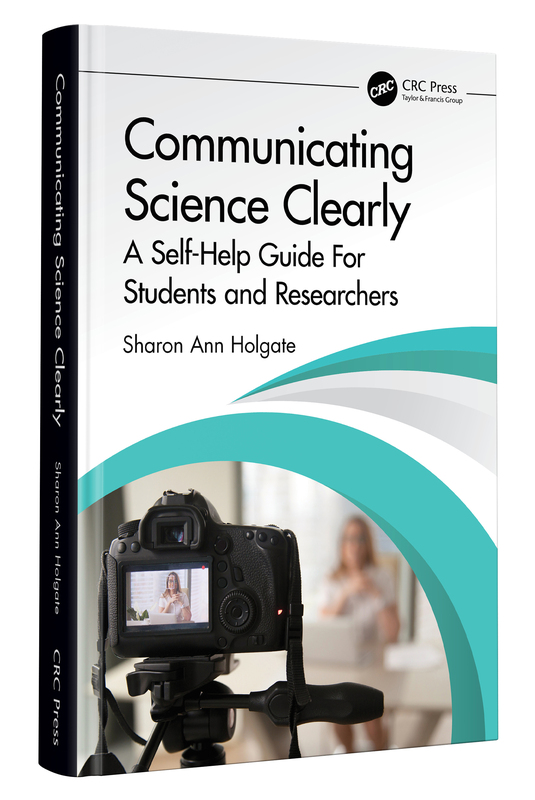
Communicating Science Clearly: A Self-Help Guide For Students and Researchers
Sharon Ann Holgate
29 November 2023
CRC Press
This unique self-help guide equips undergraduates, postgraduate students, and early career researchers within the sciences with transferrable communication skills that they can adapt and refer back to as they progress through their careers. It provides practical guidance on how to best communicate science in a range of different settings. This book facilitates clear and concise communication in both academic scenarios and the workplace. It covers settings ranging from job interviews, through conference presentations, to explaining your research to the general public. It is illustrated with first-hand experiences, top tips, and "dos and don’ts" to demonstrate best practices. It will also be a valuable guide for established academics who would like a refresher or a guide to new avenues of science communication, such as podcasts.
PR contact: [email protected]
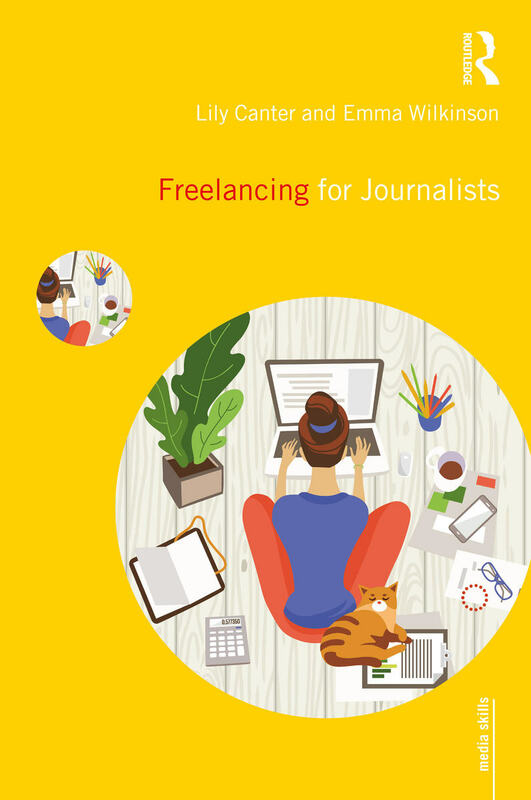
Freelancing for Journalists
Lily Canter and Emma Wilkinson
23 July 2020
Routledge
Freelancing for Journalists offers an authoritative, practical and engaging guide for current and aspiring journalism freelancers, exploring key aspects of the role including pitching a story, networking, branding and navigating freelance laws and rights.
Featuring case studies from experienced freelance journalists working in the UK, US, Asia and Australia, the book addresses the evolving media landscape and provides valuable tips on how to become established as a successful journalist across a variety of platforms. The authors also explore practical aspects of the trade including tips for setting up a business, managing tax and legal issues, getting paid and earning additional income in related sectors.
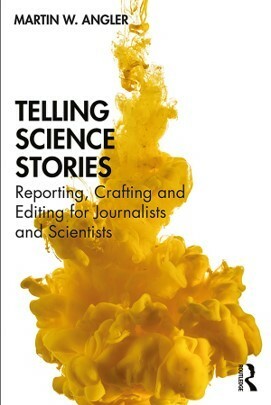
Telling Science Stories
Martin W. Angler
30 March 2020
Routledge
A practical manual for anyone who wants to turn scientific facts into gripping science stories, this book provides an overview of story elements and structure, guidance on where to locate them in scientific papers and a step-by-step guide to applying storytelling techniques to writing about science.
In this book, Martin W. Angler outlines basic storytelling elements to show how and where fledgling science storytellers can find them in scientific output. Journalistic techniques like selection through news values and narrative interviews are covered in dedicated chapters. A variety of writing techniques and approaches are presented as a way of framing science stories in ways that are informative and compelling in different media – from short films to news articles. Practical examples, selected interviews and case studies complement each chapter, with exercises and experimentation suggestions included for deeper understanding. Review questions at the end of each chapter cement the newly gained knowledge to make sure readers absorb it, with links to articles and online tools inviting further reading.
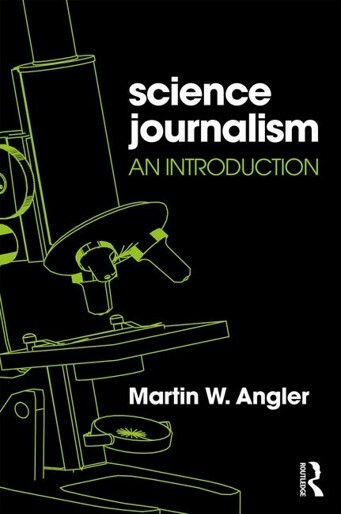
Science Journalism: An Introduction
Martin W. Angler
07 June 2017
Routledge
'Science Journalism: An Introduction' gives wide-ranging guidance on producing journalistic content about different areas of scientific research. It provides a step-by-step guide to mastering the practical skills necessary for covering scientific stories and explaining the business behind the industry.
Martin W. Angler, an experienced science and technology journalist, covers the main stages involved in getting an article written and published; from choosing an idea, structuring your pitch, researching and interviewing, to writing effectively for magazines, newspapers and online publications. There are chapters dedicated to investigative reporting, handling scientific data and explaining scientific practice and research findings to a non-specialist audience. Coverage in the chapters is supported by reading lists, review questions and practical exercises. The book also includes extensive interviews with established science journalists, scholars and scientists that provide tips on building a career in science journalism, address what makes a good reporter and discuss the current issues they face professionally. The book concludes by laying out the numerous available routes into science journalism, such as relevant writing programs, fellowships, awards and successful online science magazines.
Article first published on 29 April 2024.


